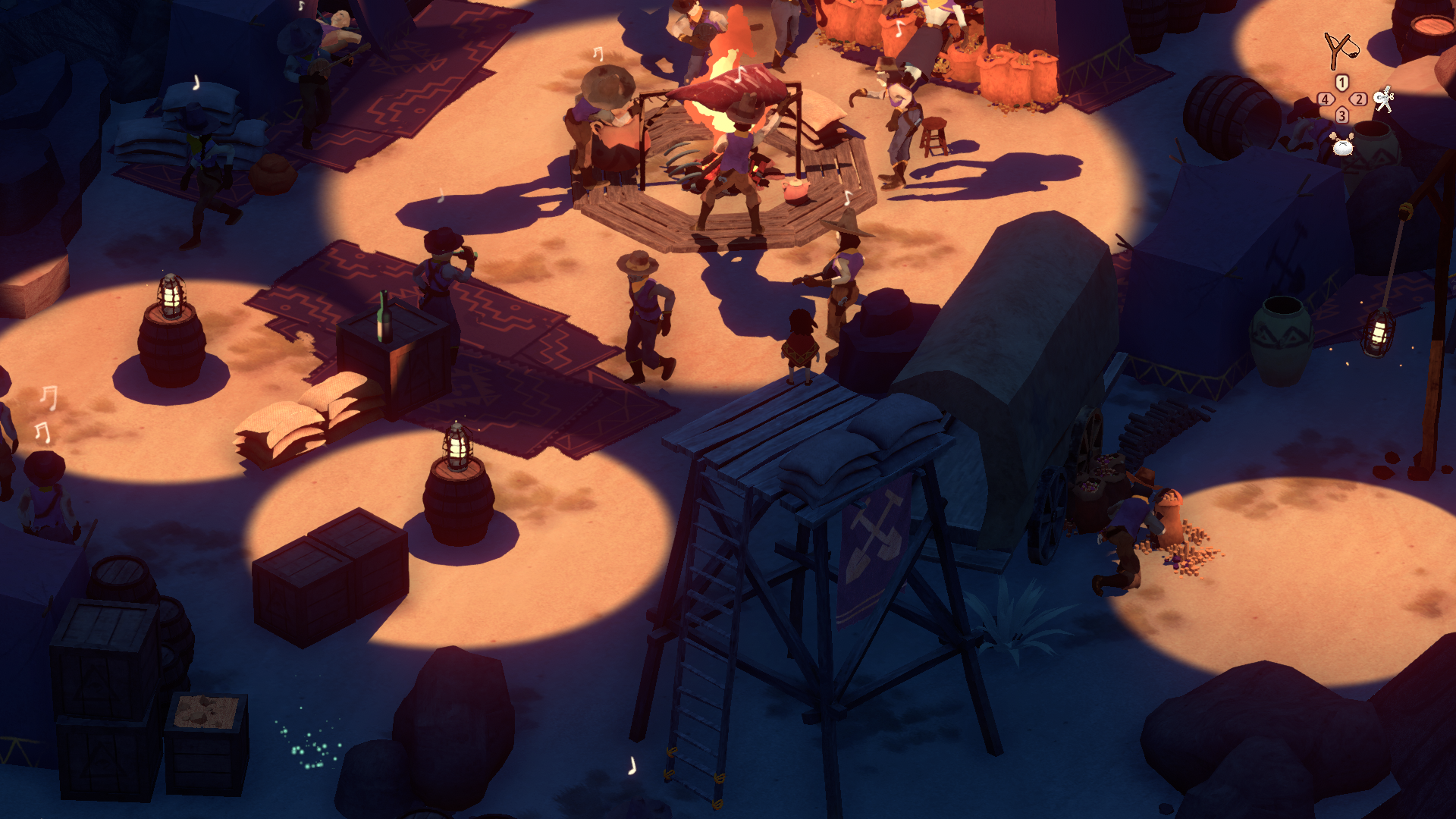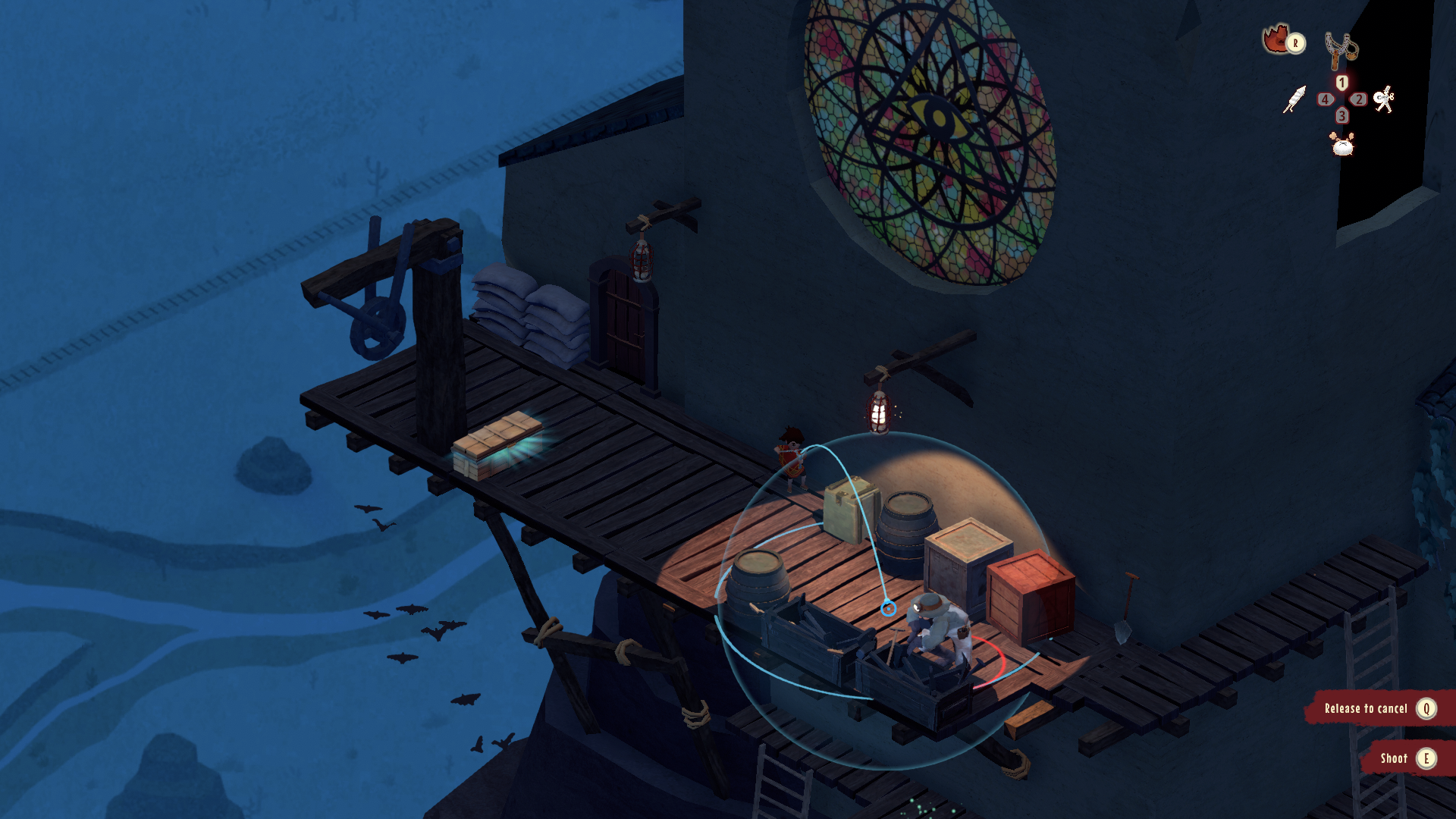Our Verdict
It's hard to play El Hijo without wishing for a little more flair in its stealth system.
PC Gamer's got your back
What is it? A stealth game set in the old west.
Reviewed on: Windows 10, Intel Core i7-9700 CPU @ 3.00GHz, 16 GB RAM
Price: $20/£18
Release date: Out now
Publisher: THQ Nordic
Developer: Honig Studios
Multiplayer: None
Link: Official site
In El Hijo, the collectibles are orphaned children. The protagonist, a six-year-old unnamed boy, walks up to them and expands their world a little bit; maybe he teaches them to juggle, or how to fold a paper airplane. Those formerly despondent kids sparkle with joy as a pop-up box informs the player that, thus far, they've "inspired" one out of the four children in the level.
There are many other charming moments in El Hijo's sepia-toned Wild West: The boy hangs off the bottom of a cow to pass through a corral undetected; he jumps in a minecart for a bit of Donkey Kong Country-style rail racing; he hides underneath a giant sombrero to protect himself from an interloping sheriff. The game has heart, is what I'm saying, and that makes it easy to root for, though as a stealth game it left me wanting.

El Hijo consists of 29 levels that follow a simple, wordless narrative about the boy reconnecting with his mother after the family farm is razed by bandits. That journey will take you through stately monasteries, arid desert wastelands, and saloon shootouts. There is danger around every corner, and calamity can only be avoided by not being seen. And so, the boy is offered the standard Sam Fisher palette of abilities. He is nearly invisible in the shadows, and he can slink along the crates, boulders, and foliage with his head down to remain uncompromised.
You will quickly acquire a slingshot, which can be used to cause distractions that will clear out guards from their pesky patrol routes. Later, the boy has access to smokebombs, wind-up toys, and fireworks to further his diversion abilities. Much of El Hijo's gameplay depends on the way you dig through your toolbox. "Do I want to use my last firecracker here? Surely I will be rewarded for my conservation later on."
Whether you're in the bowels of a church's crypt or navigating a rugged cliffside, the game pops off the screen.
All of this is played from a locked isometric perspective. El Hijo is not Metal Gear Solid, or Splinter Cell, or even Mark of the Ninja. It's a series of puzzles, rather than the anything-goes dynamism and improvisation that define most other modern stealth games. There is one clear solution for evading many of the enemies in your path. A guard dog sits squarely in the exit. The only way to get him off his spot is to strike a scarecrow with a slingshot pellet, sending a flock of crows in his direction. He chases them off, and opens a brief window to paydirt. In another instance, I progressed through a raging party by stowing away in a wooden barrel. Some drunken cowboy rolled me to the promised land. Far from the branching paths and vast inventory of Punished Snake, El Hijo is a game where there is often only one right answer.
And that's not a problem! Not necessarily. The puzzles are generally smart and constructed with care. I enjoyed figuring out the precise combination of levers to pull, which is a key sensation in many adventure games. But there were times that I wished El Hijo felt more alive. Everything about its stealth is deeply mechanical. There is a function that allows you to see the precise sightlines of your enemies, which removes some of the anxious guesswork from the proceedings entirely. As long as you're in the shade, the boy can stand literally inches in front of his adversaries without getting busted—and I think saps away some of the spirit of the genre. At the same time, I found some of El Hijo's rigidness frustratingly inconsistent. In particular, I was never given a good idea of what was in range, or out of range, of my slingshot, or if my slingshot was going to distract an enemy at all. Part of that, I think, is a symptom of El Hijo's desire to funnel its players towards their intended solutions, but it's off-putting when stuff doesn't work.

El Hijo makes up for some of those shortcomings with its beauty. Honig Studios have done a great job creating a pristine, Remington old west—one that looks like a kid's collection of plastic cowboys strewn across a sandbox. Whether you're in the bowels of a church's crypt or navigating a rugged cliffside, the game pops off the screen. The story, as I said earlier, is primarily presented through the environment, and honestly I couldn't glean much out of the major plot points. What I will say is that there is some surprisingly grim imagery in the back half—particularly children in chains being sold off as slaves—that took me aback. I'm not saying Honig was operating distastefully, but that content did seem out of place given the buoyancy of the setting.
In general, I wish El Hijo were a tad bit snappier. Throughout my time with the game, I kept thinking about Hitman Go. That game pursued a similar hybrid between regimented, low-variance stealth and smart puzzle solving, but it also moved at a quicksilver pace, and was burdened with fewer ambiguities. That is the element El Hijo is missing; the decisiveness of action that makes you truly feel as if you've outsmarted the AI. It's a sensation I always get from my international assassin or my paramilitary superspy, and I wish I got more of it from my six-year old boy.
It's hard to play El Hijo without wishing for a little more flair in its stealth system.

Luke Winkie is a freelance journalist and contributor to many publications, including PC Gamer, The New York Times, Gawker, Slate, and Mel Magazine. In between bouts of writing about Hearthstone, World of Warcraft and Twitch culture here on PC Gamer, Luke also publishes the newsletter On Posting. As a self-described "chronic poster," Luke has "spent hours deep-scrolling through surreptitious Likes tabs to uncover the root of intra-publication beef and broken down quote-tweet animosity like it’s Super Bowl tape." When he graduated from journalism school, he had no idea how bad it was going to get.


